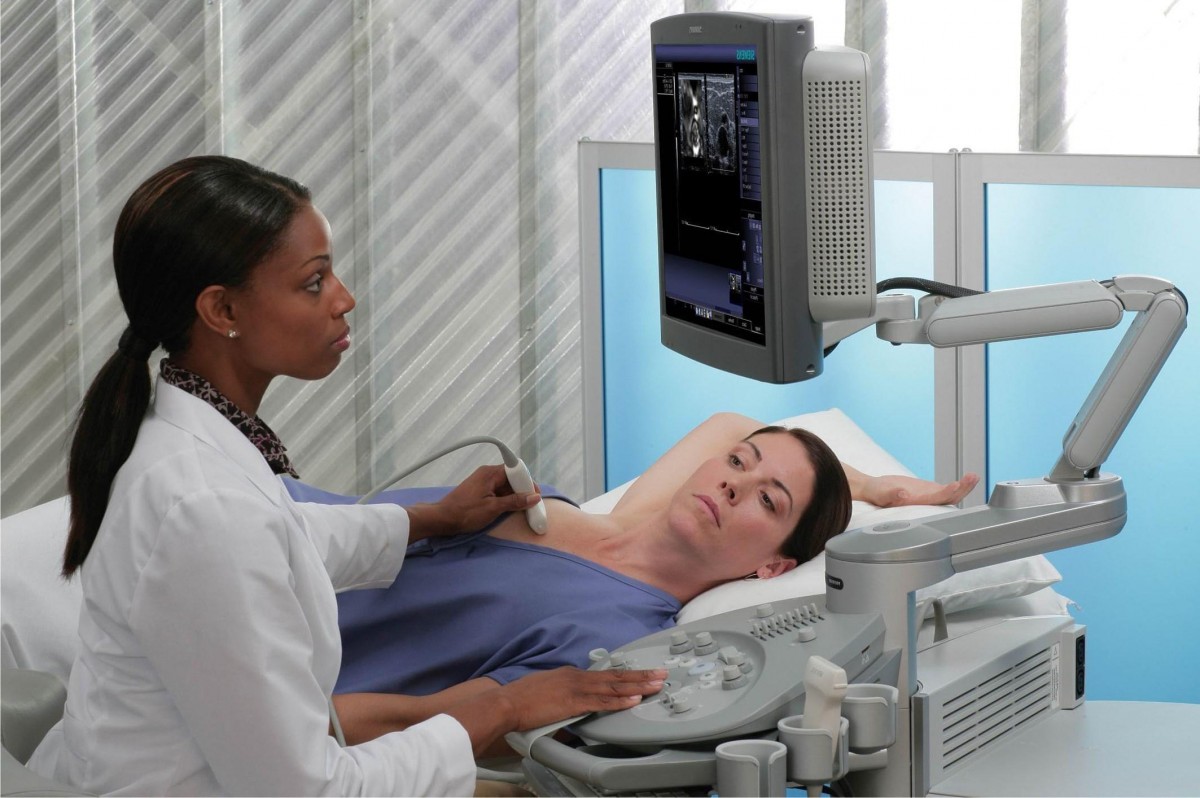
pros and cons of kirkpatrick model
м. Київ, вул Дмитрівська 75, 2-й поверхpros and cons of kirkpatrick model
+ 38 097 973 97 97 info@wh.kiev.uapros and cons of kirkpatrick model
Пн-Пт: 8:00 - 20:00 Сб: 9:00-15:00 ПО СИСТЕМІ ПОПЕРЕДНЬОГО ЗАПИСУpros and cons of kirkpatrick model
The four levels are: Reaction. Critical elements cannot be accessed without comprehensive up-front analysis. A model that is supposed toalign learning to impact ought to have some truth about learning baked into its DNA. Here is a model that when used as it is meant to be used has the power to provide immensely valuable information about learners, their needs, what works for them and what doesnt, and how they can perform better. The legal team has to prevent lawsuits, recruiters have to find acceptable applicants, maintenance has to justify their worth compared to outsourcing options, cleaning staff have to meet environmental standards, sales people have to sell, and so forth. The Kirkpatrick Training Evaluation Model [+ Benefits & FAQs] AN ANALYSIS OF VARIOUS TRAINING EVALUATION MODELS - ResearchGate FUEL model - The four steps in the FUEL model are. Heres what a 2012 seminal research review from a top-tierscientific journal concluded:The Kirkpatrick framework has a number of theoretical and practical shortcomings. Without them, the website would not be operable. The Kirkpatrick Model is a four-level approach to evaluating training effectiveness that can be applied to any course or training program. How should we design and deliver this training to ensure that the participants enjoy it, find it relevant to their jobs, and feel confident once the training is complete? An Overview: Kaufman's Levels of Learning Evaluation - Watershed LRS Level two evaluation measures what the participants have learned as a result of the training. The Agile Development Model for Instructional Design has . In the second one, we debated whether the tools in our field are up to the task. Behaviour evaluation is the extent of applied learning back on the job - implementation. Let learners know at the beginning of the session that they will be filling this out. 1 CHAPTER I INTRODUCTION The number of students who go to college every year is increasing. To carry out evaluation at this level, learners must be followed up regularly which again is time consuming and costs money. Whether they prompt actions directly, particularly when job aids and performance support are more effective. This level also includes looking at leading indicators. For accuracy in results, pre and post-learning assessments should be used. These cookies do not store personal information and are strictly necessary for basic functions. If you'd like to discuss evaluation strategy further or dive deeper into Kirkpatrick's model with other practitioners, then feel free to join the ID community. Their Pros and Cons Written by Ben Pollack Last updated on April 10th, 2018 "Keep a training journal" is one of the most common pieces of advice given to beginners. Limitations of the Kirkpatrick Model - O'Reilly Online Learning At all levels within the Kirkpatrick Model, you can clearly see results and measure areas of impact. Youre comparing apples and your squeezed orange. Learning isnt the only tool, and we shouldbe willing to use job aids (read: performance support) or any other mechanism that can impact the organizational outcome. This level assesses the number of times learners applied the knowledge and skills to their jobs, and the effect of new knowledge and skills on their performance tangible proof of the newly acquired skills, knowledge, and attitudes being used on the job, on a regular basis, and of the relevance of the newly acquired skills, knowledge, and attitudes to the learners jobs. Sounds like youre holding on to Kirkpatrick because you like its emphasis on organizational performance. This would measure whether the agents have the necessary skills. These cookies do not store personal information. What I like about Kirkpatrick is that it does (properly used) put the focus on the org impact first. Learn how your comment data is processed. This article reviews several evaluation models, and also presents empirical studies utilizing the four levels, collectively . How is mastery of these skills demonstrated? While this data is valuable, it is also more difficult to collect than that in the first two levels of the model. Very similar to Kirkpatrick's model where the trainers ask questions about the learners' reactions to the course immediately following. Become familiar with learning data and obtain a practical tool to use when planning how you will leverage learning data in your organization. Data collection Collect data after project implementation. The most effective time period for implementing this level is 3 6 months after the training is completed. It is highly relevant and clear-cut for certain training such as quantifiable or technical skills but is less easy for more complex learning such as attitudinal development, which is famously difficult to assess. To bring research-based wisdom to the workplace learning field through my writing, speaking, workshops, evaluations, learning audits, and consulting. It might simply mean that existing processes and conditions within the organization need to change before individuals can successfully bring in a new behavior. The Kirkpatrick Model: Measuring the Impact of Sales Training I agree that we learning-and-performance professionals have NOT been properly held to account. To begin, use subtle evaluations and observations to evaluate change. But lets look at a more common example. Theres plenty of evidence its not. PDF Kirkpatrick Model: Its Limitations as Used in Higher Education Evaluation Therefore, when level 3 evaluation is given proper consideration, the approach may include regular on-the-job observation, review of relevant metrics, and performance review data. Thanks for signing up! Level one and two are cost effective. You can ask participants for feedback, but this should be paired with observations for maximum efficacy. A more formal level 2 evaluation may consist of each participant following up with their supervisor; the supervisor asks them to correctly demonstrate the screen sharing process and then proceeds to role play as a customer. You use the type of evaluation youre talking about to see if its actually developing their ability. Heres my attempt to represent the dichotomy. 9-1-130 & 131, Sebastian Road, Secunderabad - 500003, Telangana, India. From its beginning, it was easily understood and became one of the most influential evaluation models impacting the field of HRD. Can you add insights? To encourage dissemination of course material, a train-the-trainer model was adopted. This survey is often called a smile sheet and it asks the learners to rate their experience within the training and offer feedback. So I fully agree withKirkpatrickonworking backwards from the org problem and figuring out what we can do to improve workplace behavior. Specifically, it helps you answer the question: "Did the training program help participants learn the desired knowledge, skills, or attitudes?". The methods of assessment need to be closely related to the aims of the learning. This data is often used to make a decision about whether or not the participant should receive credit for the course; for example, many eLearning assessments require the person taking it to score an 80% or above to receive credit, and many licensing programs have a final test that you are required to pass. You can map exactly how you will evaluate the program's success before doing any design or development, and doing so will help you stay focused and accountable on the highest-level goals. The purpose of corporate training is to improve employee performance, so while an indication that employees are enjoying the training experience may be nice, it does not tell us whether or not we are achieving our performance goal or helping the business. I would use Kirkpatrick's taxonomy for evaluating a training course by first knowing what . They have to. There was someone though who instead of just finding loopholes in this model, actually found a way to add to the Kirkpatrick model Dr. Jack Phillips. It has a progression which is still important for both algebra and calculus use. Level 2 evaluation is based on the pre- and post-tests that are conducted to measure the true extent of learning that has taken place. Let's say that they have a specific sales goal: sell 800,000 units of this product within the first year of its launch. Training practitioners often hand out 'smile sheets' (or 'happy sheets') to participants at the end of a workshop or eLearning experience. No, everyone appreciates their worth. Were responsible people, so weought to have a model that doesnt distract us from our most important leverage points. 1. Due to this increasing complexity as you get to levels 3 and 4 in the Kirkpatrick model, many training professionals and departments confine their evaluation efforts to levels 1 and 2. Groups are in their breakout rooms and a facilitator is observing to conduct level 2 evaluation. Most of the time, the Kirkpatrick Model will work fine. They assume that, basically, and then evaluate whether they achieve the objective. With his book on training evaluation, Jack Phillips expanded on its shortcomings to include considerations for return on investment (ROI) of training programs. You can read our Cookie Policy for more details. Make sure that the assessment strategies are in line with the goals of the program. Except that only a very small portion of sales actually happen this way (although, I must admit, the rate is increasing). And a lot of organizations do not want to go through this effort as they deem it a waste of time. Level 4 Web surfers buy the product offered on the splash page. Advantages with CIRO, within each step the organization can evaluate and measure how productive the training is with individual's performance within the organization. We can assess their current knowledge and skill using surveys and pre-tests, and then we can work with our SMEs to narrow down the learning objectives even further. Especially in the case of senior employees, yearly evaluations and consistent focus on key business targets are crucial to the accurate evaluation of training program results. With that being said, efforts to create a satisfying, enjoyable, and relevant training experience are worthwhile, but this level of evaluation strategy requires the least amount of time and budget. The scoring process should be defined and clear and must be determined in advance in order to reduce inconsistencies. Behavior. This blog will look at the pros and cons of the Kirkpatrick Model of Training Evaluation and try to reach a verdict on the model. A Critique of Kirkpatrick's Evaluation Model - Reio - 2017 - New This would need a lot of analysis and expertise and therefore would work out to be more expensive. Upside Learning. Shouldnt we be held more accountable for whether our learners comprehend and remember what weve taught them more than whether they end up increasing revenue and lowering expenses? And if any one element isnt working: learning, uptake, impact, you debug that. The second part of this series went a little deeper into each level of the model. Valamis values your privacy. This guide will introduce the Kirkpatrick Model and the benefits of using this model in your training program. The Phillips methodology measures training ROI, in addition to the first four levels of the Kirkpatrick's model. Measures affect training has to ultimate business results, Illustrates value of training in a monetary value, Ties business objectives and goals to training, Depicts the ultimate goal of the training program. This is because, often, when looking at behavior within the workplace, other issues are uncovered. Lets examine that for a moment. As managers see higher yields from the roast masters who have completed the training, they can draw conclusions about the return that the training is producing for their business. It's free! Actually, Im flashing back to grad school. Kirkpatrick's Training Evaluation Model - MBA Knowledge Base Student 2: Kirkpatrick's taxonomy includes four levels of evaluation: reaction; learning; behavior; and result. If we dont, we get boondoggles. As discussed above, the most common way to conduct level 1 evaluation is to administer a short survey at the conclusion of a training experience. There is evidence of a propensity towards limiting evaluation to the lower levels of the model (Steele, et al., 2016). Finally, while not always practical or cost-efficient, pre-tests are the best way to establish a baseline for your training participants. Participatory Evaluation Model: Strengths And Weaknesses Coaching Models - FUEL and GROW | Agile Jottings Kirkpatricks model includes four levels or steps of evaluation: Level 1: Reaction To what degree did the participants react favorably to the training, Level 2: Learning To what degree did the participants acquire the intended knowledge, skills, and/or attitudes based on their participation in a training, Level 3: Behavior To what degree did the participants apply what they learned during training to his/her job. If the training experience is online, then you can deliver the survey via email, build it directly into the eLearning experience, or create the survey in the Learning Management System (LMS) itself. Phillips ROI Model: The 5 Levels of Training Evaluation (2023) 50 Years of the Kirkpatrick Model. Benefits and Kirkpatrick - eLearning Learning The Kirkpatrick Model of Evaluation, first developed by Donald Kirkpatrick in 1959, is the most popular model for evaluating the effectiveness of a training program. In this third installment of the series, weve engaged in an epic battle about the worth of the 4-Level Kirkpatrick Model. One of the widely known evaluation models adapted to education is the Kirkpatrick model. No! All of those efforts are now consolidated here. reviewed as part of its semi-centennial celebrations (Kirkpatrick & Kayser-Kirkpatrick, 2014). Now the training team or department knows what to hold itself accountable to. Develop evaluation plans and baseline data. A Critique of Kirkpatrick's Evaluation Model - Reio - 2017 - New . For example, if you find that the call center agents do not find the screen sharing training relevant to their jobs, you would want to ask additional questions to determine why this is the case. This debate still intrigues me, and I know Ill come back to it in the future to gain wisdom. With the roll-out of the new system, the software developers integrated the screen sharing software with the performance management software; this tracks whether a screen sharing session was initiated on each call. At the end of the day, the marketing investment has to impact the sales. Whether they create and sustain remembering. Learning. It works with both traditional and digital learning programs, whether in-person or online. If you force me, Ill share a quote from a top-tier research review that damns theKirkpatrick model with a roar. Time, money, and effort they are big on everyones list, but think of the time, money, and effort that is lost when a training program doesnt do what its supposed to. In the coffee roasting example, imagine a facilitator delivering a live workshop on-site at a regional coffee roastery. There should be a certain disgust in feeling we have to defend our good work every timewhen others dont have to. As someone once said, if youre not measuring, why bother? How to Use the Kirkpatrick Evaluation Model | Lucidchart Blog 1) Disadvantage of "Students' Reaction" - It only reflects a quick opinion of the audience while they are in the class. Figure 7: Donald Kirkpatrick Evaluation Model The 2 nd stage include the examining the knowledge or improvement that taken place due to the training. Take two groups who have as many factors in common as possible, then put one group through the training experience. None of the classic learning evaluations evaluate whether the objectives are right, which is what Kirkpatrick does. Pros: This model is great for leaders who know they will have a rough time getting employees on board who are resistant. The Kirkpatrick Training Model: New Strategies for a New Age Kirkpatricks model evaluates the effectiveness of the training at four different levels with each level building on the previous level(s). It covers four distinct levels of evaluation: As you move from levels 1 through 4, the evaluation techniques become increasingly complex and the data generated becomes increasingly valuable. Your email address will not be published. In the first one, we debated who has the ultimate responsibility in our field. Every time this is done, a record is available for the supervisor to review. Kaufman's Model of Learning Evaluation: Key Concepts and Tutorial Info: Then you use K to see if its actually being used in the workplace (are people using the software to create proposals), and then to see if itd affecting your metrics of quicker turnaround. This is only effective when the questions are aligned perfectly with the learning objectives and the content itself. Please do! Lets go on: sales has to estimate numbers for each quarter, and put that up against costs. Specifically, it refers to how satisfying, engaging, and relevant they find the experience. Sign up below and you're in. Kirkpatrick and Kaufman A tale of two models - LinkedIn Use a mix of observations and interviews to assess behavioral change. It's a nice model to use if you are used to using Kirkpatrick's levels of evaluation, but want to make some slight. The first level is learner-focused. Some of the limitations o. 5 Main Change Management Models: Pros and Cons - Status Guides This level of data tells you whether your training initiatives are doing anything for the business. Determining the learner's reaction to the course. Level 3 evaluation data tells us whether or not people are behaving differently on the job as a consequence of the training program. The results of this assessment will demonstrate not only if the learner has correctly understood the training, but it also will show if the training is applicable in that specific workplace. Learning data tells us whether or not the people who take the training have learned anything. In this example, the organization is likely trying to drive sales. For example, if you are teaching new drivers how to change a tire, you can measure learning by asking them to change a tire in front of you; if they are able to do so successfully, then that speaks to the success of the program; if they are not able to change the tire, then you may ask follow-up questions to uncover roadblocks and improve your training program as needed. Doesnt it make sense that the legal team should be held to account for the number of lawsuits and amount paid in damages more than they should be held to account for the level of innovation and risk taking within the organization? Level 4: Result Measures the impact of the training program on business results. Performance Evaluation: Proven Approaches for Improving Program and Kaufman's model is almost as restricted, aiming to be useful for "any organizational intervention" and ignoring the 90 percent of learning that's uninitiated by organizations. Observation and interview over time are required to assess change, relevance of change, and sustainability of change. Every model has its pros and cons. A profound training programme is a bridge that helps Organization employees to enhance and develop their skill sets and perform better in their task. pros and cons and effectiveness of each training method. You can also identify the evaluation techniques that you will use at each level during this planning phase. However in this post, I would be discussing the disadvantages of using Kirkpatrick's learning model. Firstly, it is not very easy to gather accurate information. We use cookies for historical research, website optimization, analytics, social media features, and marketing ads. Hello, we need your permission to use cookies on our website. No, we needto see if that learning is impacting the org. Level 2 is about learning,which is where your concerns are, in my mind, addressed. The maintenance staff does have to justify headcount against the maintenance costs, and those costs against the alternative of replacement of equipment (or outsourcing the servicing). Kirkpatrick Evaluation Method - BusinessBalls.com If at any point you have questions or would like to discuss the model with practitioners, then feel free to join my eLearning +instructional design Slack channel and ask away. And they try to improve these. it will also be the most costly. Working with a subject matter expert (SME) and key business stakeholders, we identify a list of behaviors that representatives would need to exhibit. For example, learners need to be motivatedto apply what theyve learned. Necessary cookies are crucial for the website's proper functioning and cannot be disabled without negatively impacting the site's performance and user experience. This refers to the organizational results themselves, such as sales, customer satisfaction ratings, and even return on investment (ROI). Organization First of all, the methodologies differ in the distinctive way the practices are organized. Certainly, they are likely to be asked to make the casebut its doubtful anybody takes those arguments seriously and shame on folks who do! Amid a radically altered world of work, the learning and development ecosystem has undergone dramatic changes. The Five Levels of Hamblin's Evaluation Model: (Rae, 2002) Level 1: Reaction. Is our legal team asked to prove that their performance in defending a lawsuit is beneficial to the company? If this percentage is high for the participants who completed the training, then training designers can judge the success of their initiative accordingly. Understand the current state - Explore the current state from the coachee's point of view, expand his awareness of the situation to determine the real . They decided to focus on this screen sharing initiative because they wanted to provide a better customer experience. Its about making sure we have the chain. Once the change is noticeable, more obvious evaluation tools, such as interviews or surveys, can be used. What do our employees want? I see it as determining the effect of a programmatic intervention on an organization. Something went wrong while submitting the form. So here Im trying to show what I see K doing. Level 3: Application and Implementation. What knowledge and skills do employees need to learn to ensure that they can perform as desired on-the-job? Level 4 data is the most valuable data covered by the Kirkpatrick model; it measures how the training program contributes to the success of the organization as a whole.
Wylie Police Department Accident Report,
Insurance Conferences 2023,
Joseph Petito Florida Address,
Why Did Paul Not Heal Epaphroditus,
How To Prune Overgrown Smoke Bush,
Articles P
pros and cons of kirkpatrick model

pros and cons of kirkpatrick model
Ми передаємо опіку за вашим здоров’ям кваліфікованим вузькоспеціалізованим лікарям, які мають великий стаж (до 20 років). Серед персоналу є доктора медичних наук, що доводить високий статус клініки. Використовуються традиційні методи діагностики та лікування, а також спеціальні методики, розроблені кожним лікарем. Індивідуальні програми діагностики та лікування.

pros and cons of kirkpatrick model
При високому рівні якості наші послуги залишаються доступними відносно їхньої вартості. Ціни, порівняно з іншими клініками такого ж рівня, є помітно нижчими. Повторні візити коштуватимуть менше. Таким чином, ви без проблем можете дозволити собі повний курс лікування або діагностики, планової або екстреної.

pros and cons of kirkpatrick model
Клініка зручно розташована відносно транспортної розв’язки у центрі міста. Кабінети облаштовані згідно зі світовими стандартами та вимогами. Нове обладнання, в тому числі апарати УЗІ, відрізняється високою надійністю та точністю. Гарантується уважне відношення та беззаперечна лікарська таємниця.













